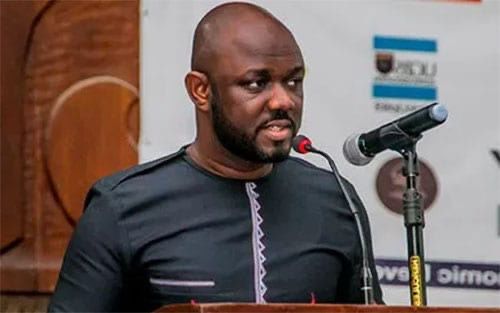The energy sector in Ghana is facing a significant crisis, prompting the government to seek solutions to prevent its collapse. The recently passed Energy Sector Levies (Amendment) Bill, 2025, which introduces a GHS1 levy on every litre of fuel, has sparked debate and criticism. Benjamin Boakye, Executive Director of the Africa Centre for Energy Policy (ACEP), cautions against relying solely on tax-heavy approaches, arguing that they fail to address the fundamental inefficiencies plaguing the sector. He emphasizes that accountability for those responsible for the sector’s precarious state is crucial, alongside decisive action to rectify the underlying issues. Simply increasing the financial burden on citizens, he argues, does not solve the core problems.
The new levy, often referred to as a “dumsor levy,” aims to generate funds for fuel procurement in power generation. Finance Minister Dr. Cassiel Ato Forson justifies the levy by highlighting the inadequacy of current electricity tariffs to cover fuel costs, emphasizing the sector’s critical condition and the urgent need for intervention. However, Boakye contends that this approach mirrors the strategies of the previous Finance Minister, Ken Ofori-Atta, which he deems ineffective. He calls for a shift away from simply taxing the populace and towards holding accountable those who have benefited from the sector’s inefficiencies, suggesting they bear a significant responsibility for the current crisis.
Boakye’s critique underscores a critical concern: while generating revenue is necessary, it is insufficient without addressing the root causes of the energy sector’s problems. The Energy Sector Levies (Amendment) Bill, 2025, while intended to provide immediate financial relief, risks perpetuating a cycle of relying on tax increases without tackling the deeper issues of mismanagement, inefficiency, and lack of accountability. The ten-year history of the Energy Sector Levy Act (ESLA), which the new bill amends, serves as a stark reminder of the limitations of relying solely on taxation to address systemic problems.
The passage of the controversial bill, despite a walkout by the Minority caucus in Parliament, highlights the urgency of the situation and the government’s determination to find solutions. However, the debate surrounding the bill also reflects deep divisions regarding the most effective approach. Boakye’s call for accountability resonates with concerns that those who have contributed to the sector’s decline have not faced adequate consequences. This perceived lack of accountability undermines public trust and reinforces the perception that the burden of the crisis falls disproportionately on ordinary citizens.
The fundamental question remains: how to effectively address the energy sector crisis in a sustainable manner. While the new levy provides a short-term injection of funds, it does not address the underlying structural issues. A comprehensive approach requires a combination of measures, including improving efficiency in power generation and distribution, tackling corruption and mismanagement, and ensuring that those responsible for past failures are held accountable. Simply increasing taxes without addressing these underlying issues risks perpetuating the cycle of crisis and further burdening citizens.
The government’s challenge lies in balancing the urgent need for financial stability with the imperative to address the systemic problems plaguing the energy sector. While the “dumsor levy” may provide a temporary reprieve, a long-term solution requires a more comprehensive and strategic approach. This includes not only generating revenue but also implementing reforms to improve efficiency, transparency, and accountability within the sector. Ultimately, the success of any intervention will depend on the government’s ability to build public trust and demonstrate a commitment to addressing the root causes of the crisis, rather than simply passing the cost on to the citizens.


